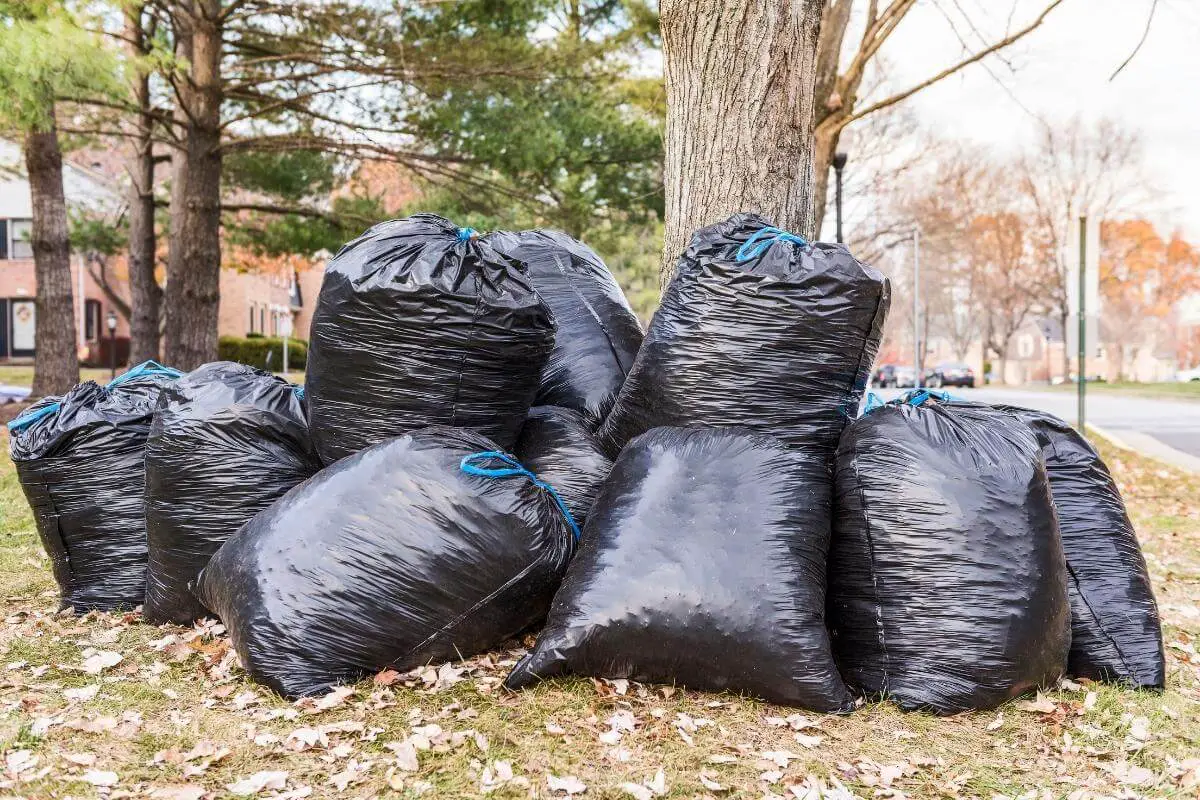Easy, inexpensive, and surprisingly successful, black bag composting is perfect for those with limited space.
It’s even possible to have quality compost for your indoor plants when living in an apartment.
Welcome to the wonders of black bag composting!
Black bag composting involves making compost in black bags. Thick black trash can liners and refuse sacks provide the perfect warm and dark conditions that will turn dead leaves and household waste into the perfect compost for your plants.
Really? Just Black Bags?
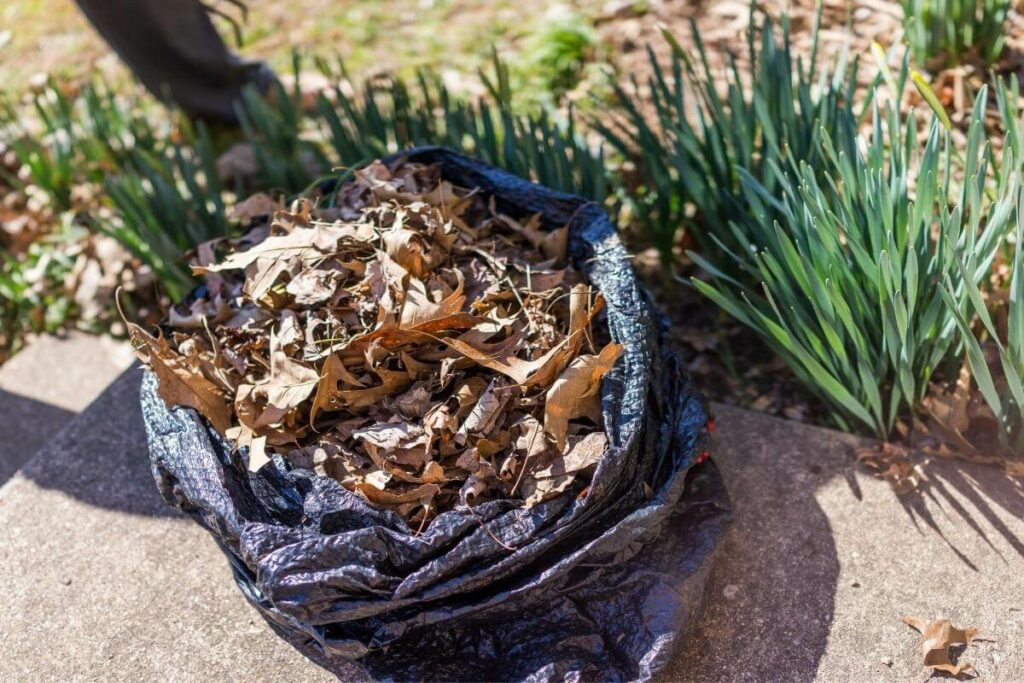
Pretty much!
The great thing about black bag composting is that it’s so easy.
Although, it’s not quite as simple as throwing some leaves in a bag and coming back to compost as if by magic.
All compost requires a formula, and just because you’re composting in slightly different conditions doesn’t mean the formula changes.
Composting essentially occurs when carbon-rich materials meet nitrogen-rich materials and get together with a little bit of moisture and some nice, warm conditions.
That’s the case whether you have a regular compost heap in the garden, a bin for vermicomposting, or you’re choosing to compost in trash cans.
So, you’ve got some thick trash can bags or refuse bags and a whole pile of dead leaves that your neighbors have let you take with them after they raked their garden. What else do you need?
The leaves are the carbon, but you’ll need to add your own nitrogen. This is simple enough: a bag of nitrogen-rich pellets from your local DIY store or garden center will do the trick.
Action To Be Taken: Mix the leaves and the pellets, add a couple of quarts of water, throw in a shovel or two of regular garden soil, and tie that bag up tight with strong string or cable ties.
Your Own Little Ecosystem
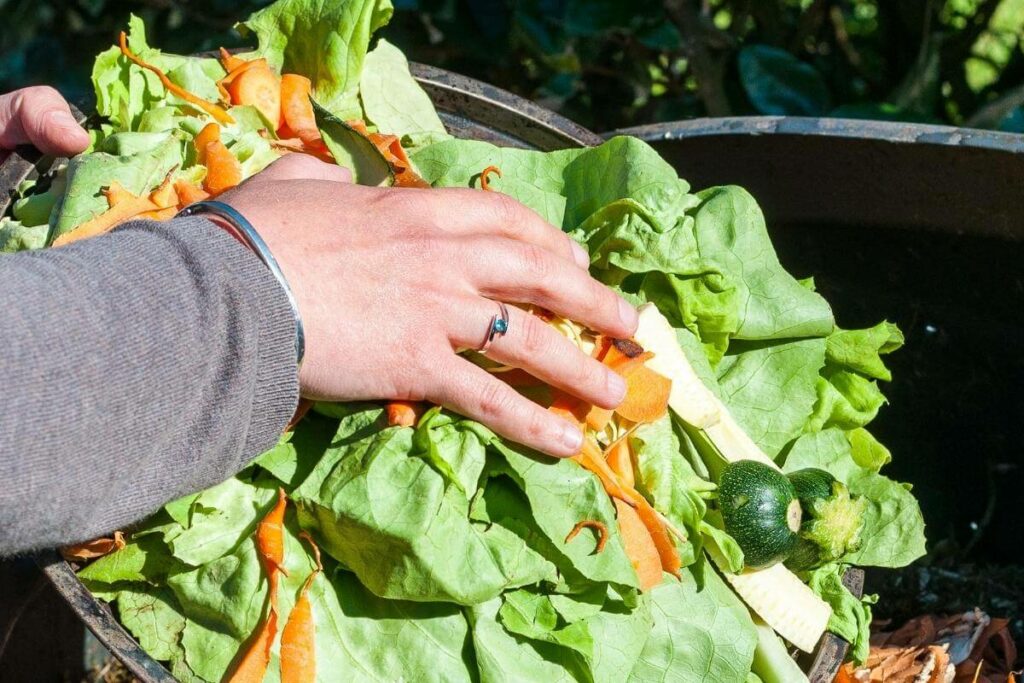
Once the bag’s tied up, you can simply leave it for a while.
How long the composting process will take depends on one main component: whether you choose aerobic or anaerobic composting.
Black Bag Composting: Aerobic or Anaerobic?
There are two distinct schools of thought when it comes to composting, and it’s down to whether you choose to use oxygen or bacteria as the main fuel of the composting process.
Aerobic composting using black bags means that once you tie up the bag tightly and leave it to sit, it does its thing without you introducing more oxygen.
Turning Up the Heat
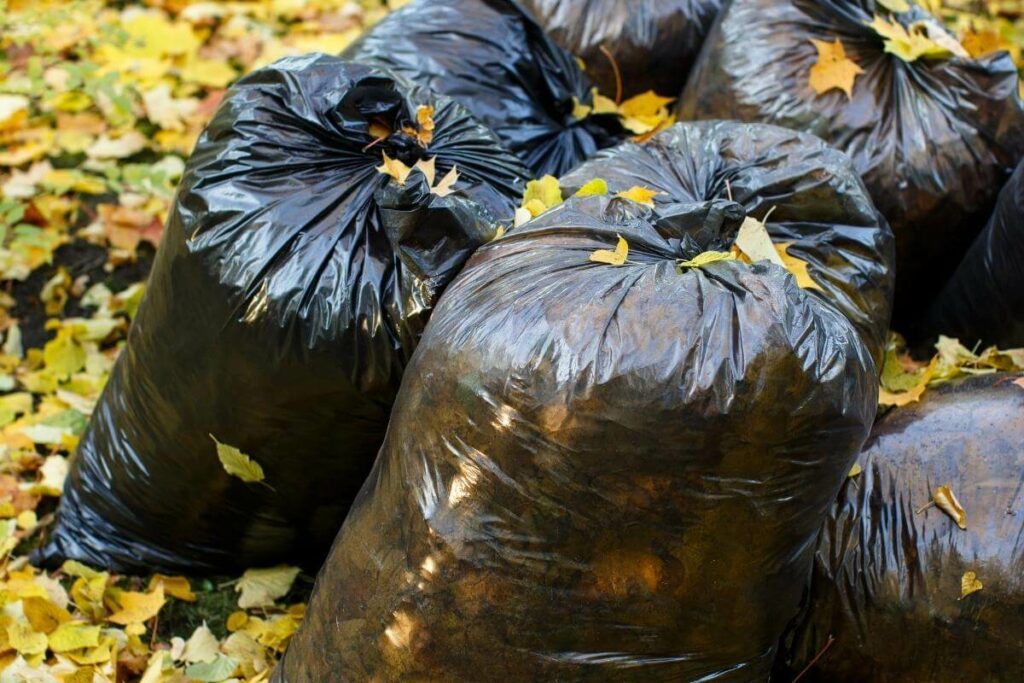
Oxygen is what makes composting hot.
You’ll probably have heard the term ‘hot composting’, and this occurs naturally when the balance of nitrogen, carbon and oxygen all come together and work at their most productive state, so all the matter breaks down efficiently and your composting pile does exactly what it should.
Hot composting is also the most environmentally friendly method of composting because it results in less methane being reduced into the atmosphere.
Between this, and the fact that oxygen means the composting process occurs much faster, people choose to use aerobic composting when using black bags.
There’s no real extra work involved; it just means poking some holes into the bags so that there’s a constant supply of oxygen, and occasionally palpating the bag just to get some movement in there and disperse the oxygen more evenly.
Watch Out: Hot composting does require larger bags, so if space is a concern you may want to try the anaerobic method.
Keeping Your Cool
If you live in an apartment and have your black bags on the balcony, then you might not want to poke holes into them as there’s little chance of drainage and you can end up making a mess.
Keeping the bags tied up with no oxygen is known as the anaerobic process.
Even matter with no oxygen will still decompose eventually, albeit much more slowly than it would it you were using the aerobic method.
Instead of oxygen, the composting pile relies on bacteria and moisture from the water you added at the beginning. It never gets hot, and also continues to work very well in the colder weather.
Because the bag it tightly sealed, you always won’t get any nasty smells emanating from the bag.
Natural, healthy compost should ideally smell like dirt or earth, but at times when the pile’s working on some particularly stubborn matter, it can give off a bit of a whiff. Closed, anaerobic bags make sure no smells escape.
The water itself does contain some oxygen, so it’s not as though the whole process is happening in a vacuum, but it can take up to a year for your leaves to become compost.
Aerobic composting takes around six months.
Is Black Bag Composting Just for Leaves?
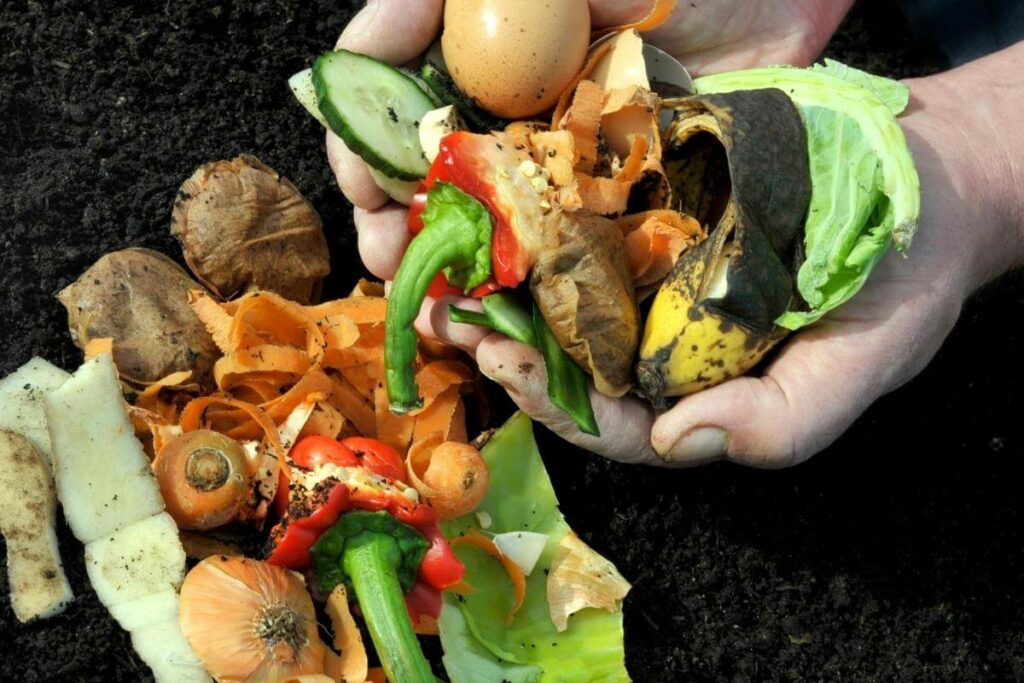
No, not at all.
Leaves are a great source of carbon and around fall time they’re everywhere in abundance. No neighbor is likely to have a problem with you requesting a few bags of their dead garden leaves.
(As a side note, even if your first-time efforts don’t result in the compost you wanted, dead leaves always make for excellent mulch to put in your garden so don’t throw them away if they didn’t break down into compost exactly how you’d have liked.)
But the beauty of composting is that it makes use of all kinds of natural waste that you would otherwise throw into the trash.
You can start black bag composting with all manner of items, including:
- Fruit and vegetable waste
- Weeds and yard waste
- Straw and hay
- Coffee grounds
- Cardboard
This mix of fresh, nitrogen-rich produce and dry, carbon-rich material will keep your bags composting for as long as you continue with the process.
What Can’t Go in the Bag?
Don’t put anything into your black composting bags that you wouldn’t put on a regular compost heap.
The following has no place in the composting world:
- Meat or dairy products
- Dog food
- Poop (apart from horse manure or rabbit droppings)
- Grease or oils
- Pesticide-treated yard waste
- Painted wood
- Plastic
- Glossy paper or magazines
Try it Out!
Black bag composting is so easy. It requires a bag like this, and such little space that it’s worth having a go at, just to see how it works.
And remember that any kind of composting is a great way to recycle waste products and feed your plants.
